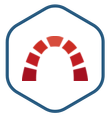 We are thrilled to announce that the Bitnami Docker Redmine container has been recently released with support for PostgreSQL databases.
We are thrilled to announce that the Bitnami Docker Redmine container has been recently released with support for PostgreSQL databases. Selecting between MariaDB or PostgreSQL is now possible via the following environment variables:
- REDMINE_DB_MYSQL
- REDMINE_DB_POSTGRES
You can use the following docker-compose.yml file to deploy our Bitnami Redmine container using a PostgreSQL database:
services:
postgresql:
image: 'bitnami/postgresql:latest'
volumes:
- 'postgresql_data:/bitnami/postgresql'
redmine:
image: 'bitnami/redmine:latest'
ports:
- '80:3000'
environment:
- REDMINE_DB_POSTGRES=postgresql
volumes:
- 'redmine_data:/bitnami/redmine'
depends_on:
- postgresql
volumes:
postgresql_data:
driver: local
redmine_data:
driver: local
Test it by running the following commands:
$ git clone https://github.com/bitnami/bitnami-docker-redmine
$ cd bitnami-docker-redmine
$ docker-compose -f docker-compose-postgresql.yml up
If you'd like to find the Redmine Docker Compose files for both MariaDB and PostgreSQL databases, please check the Bitnami Docker Redmine repository.
In addition, the stable Redmine Helm chart has also been updated to support this new feature. You can read more on how to deploy your Redmine application on top of a Kubernetes cluster using Helm in the Kubernetes Charts repository.
If you have any other questions in regards to Bitnami containers, Kubernetes, or Helm Charts, feel free to check out or documention at docs.bitnami.com or ask one of our engineers at community.bitnami.com!














